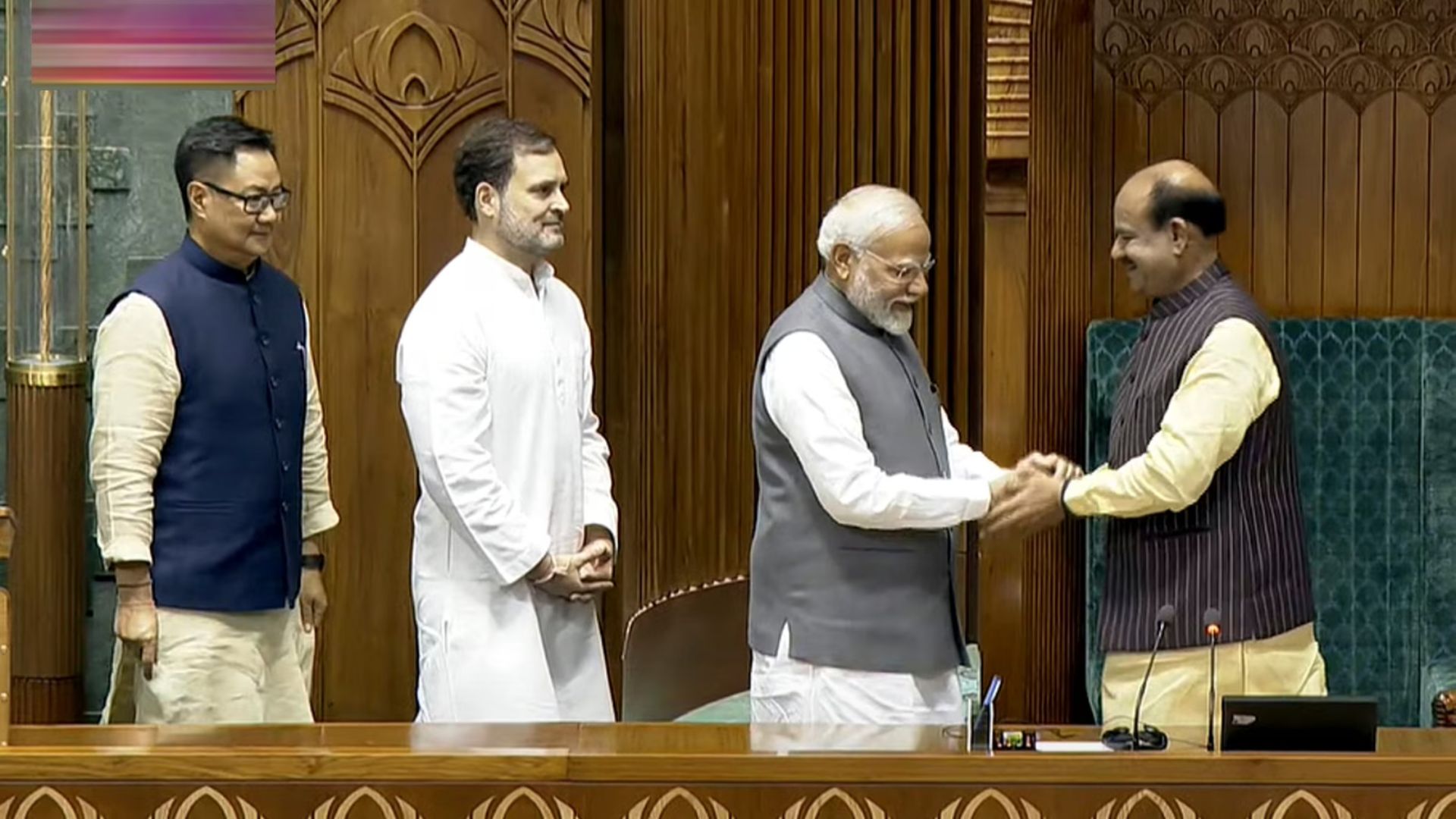In a vehement rebuttal to the opposition’s demand for the Deputy Speaker’s post, the central government, under the aegis of the National Democratic Alliance (NDA), has accused the opposition of duplicity. NDA leaders argue that the opposition’s insistence on this position in the Lok Sabha starkly contrasts with their practices in state assemblies where they hold power and retain the Deputy Speaker’s position for themselves.
BJP leaders have suggested that if the opposition genuinely wished to honor K Suresh for his extensive parliamentary experience, they could have nominated him for the position of Leader of the Opposition instead. This proposition underscores their belief in the opposition’s lack of genuine intent behind the demand.
Bansuri Swaraj, the debutant BJP MP from New Delhi and daughter of the late Sushma Swaraj, shared her perspective with the media. “It would have been better if the election was conducted unanimously, as the Speaker represents everyone. However, it is unfortunate that the Opposition has made it conditional,” she remarked. She further critiqued the INDIA bloc for nominating K Suresh despite knowing their insufficient numbers to secure his election as Speaker. “K Suresh is an experienced leader, so why didn’t the Opposition elect him as the Leader of the Opposition?” she queried.
Similarly, BJP National spokesperson Shehzad Poonawala debunked Congress MP Rahul Gandhi’s assertion that the Deputy Speaker’s post is traditionally reserved for the opposition. He presented a detailed list of instances where Deputy Speakers were from the same party as the Speaker, both in the Lok Sabha and various state assemblies. Sharing a post on his social media account X (formerly Twitter), Poonawala listed examples from historical precedents where Congress, while in power, retained both positions.
“When Jawaharlal Nehru was Prime Minister, the Deputy Speakers were M Ananthasayanam Ayyangar (1952-1956), Hukam Singh (1956-1962), and S V Krishnamoorthy Rao (1962-1967), all from the Congress party, while the Speakers were also from Congress,” Poonawala noted. He continued, “Similarly, during Indira Gandhi’s tenure as Prime Minister, R K Khadilkar from Congress served as Deputy Speaker from 1967 to 1969.”
Poonawala also highlighted current instances in states governed by Congress and its allies where both the Speaker and Deputy Speaker posts are held by the same party. “In West Bengal, TMC’s Biman Banerjee is the Speaker, and his party colleague Ashish Banerjee is the Deputy Speaker. In Tamil Nadu, DMK’s M Appavu and K Pitchandi serve as Speaker and Deputy Speaker, respectively. In Karnataka, Congress’s U T Khader Fareed is the Speaker, and R M Lamani is the Deputy Speaker. In Kerala, LDF’s A N Shamseer (CPM) is the Speaker, and Chittayam Gopakumar is the Deputy Speaker,” he detailed. The Deputy Speaker’s post remains vacant in Congress-governed Telangana and Jharkhand, where the party is a junior ally of JMM.
Conversely, Arvind Sawant, leader of Shiv Sena (UBT) and part of the INDIA bloc, criticized the NDA government for dismissing the opposition’s demand. He recalled the tradition followed in 2014 when AIADMK’s M Thambi Durai served as Deputy Speaker while BJP’s Sumitra Mahajan was the Speaker. “This was the convention and tradition. However, in the last term, the government was highhanded and did not appoint a Deputy Speaker. This time, the opposition is stronger, and when they asked for our support for the speaker, we agreed on the condition that we be given the Deputy Speaker’s post. The government responded that it would be discussed subsequently,” Sawant stated.
Historically, from the 6th to the 16th Lok Sabha, the Deputy Speaker’s post was held by the opposition. The last instance of this was in the 16th Lok Sabha when AIADMK’s M Thambi Durai served as Deputy Speaker and BJP’s Sumitra Mahajan was the Speaker. In the 17th Lok Sabha, the position remained vacant.
The ongoing debate around the Deputy Speaker’s post underscores the complex interplay of tradition, power, and political strategy in India’s parliamentary landscape. As the political tussle continues, the quest for balance between historical precedents and contemporary political dynamics remains a challenging endeavor for both the ruling and opposition parties.









